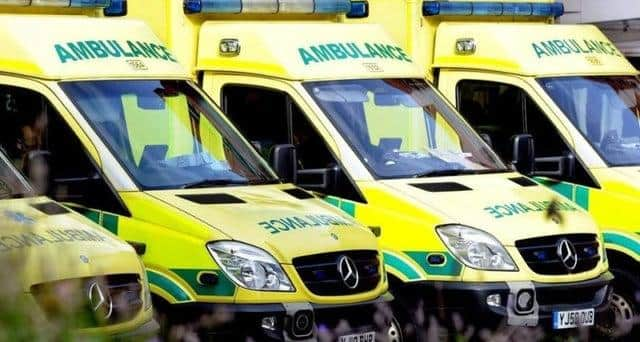Ambulance service urges people in Sheffield to think twice before dialling 999 over winter period
and live on Freeview channel 276
The service is already dealing with a sustained 25 per cent increase in demand compared to pre-pandemic levels and this is expected to increase by a further 30 per cent on the busiest days of the festive period.
Staff are currently dealing with an average of 3,400 calls every day and it is predicted that this could increase to 4,500 ‘999’ calls on Boxing Day, New Year’s Eve and New Year’s Day – an average of one every 20 seconds.


Advertisement
Hide AdAdvertisement
Hide AdWhile there are measures in place to help cope with the rise in demand, including more ambulances and additional frontline staff, YAS stresses that members of the public have a key role to play by ensuring they use the service responsibly.
Nick Smith, Executive Director of Operations for YAS, said: “The on-going pressures of Covid-19 and exceptional levels of demand, higher staff sickness levels and the wider pressures being felt across the whole of the NHS system, have all impacted on our services. We are doing all we can to ensure that our patients get the help they need.
“We always prioritise our response to the most seriously ill and injured patients. The public can help with this by knowing when to call 999 and when another NHS service is more appropriate.
“If someone is seriously ill or injured and their life is at risk, you should call 999 immediately. If not, please consider other healthcare options.”
Advertisement
Hide AdAdvertisement
Hide AdGenuine 999 calls include chest pain, difficulty breathing, loss of consciousness, severe loss of blood, severe burns and scalds, choking, fitting/convulsions, drowning, severe allergic reaction, heart attack, stroke and major trauma such as a serious road traffic accident, stabbing, shooting, fall from height or a serious head injury.
Mr Smith said dialling 999 doesn’t mean an ambulance will automatically be sent.
He added: “Our dedicated staff are doing their best to respond as quickly as possible to all 999 calls, but we acknowledge that there may be a delay at exceptionally busy times.”
